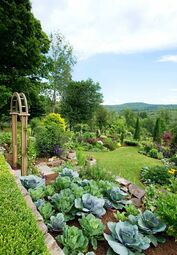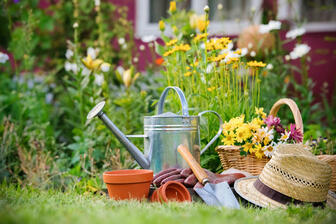
It’s no secret that gardening contributes positively to our overall sense of health and wellbeing. During the height of the pandemic there was an influx of new gardeners. Many now had time to dedicate to a new “hobby” and there was a deep-rooted urge to grow. The Japanese practice of “Forest Bathing” became a common concept. Nature Therapy, otherwise called “ecotherapy”, became its own distinct area within psychology, with some practitioners now dedicating their work to that field exclusively. My own journey started with a small, raised bed and before I knew it, I was growing my own plants, learning about seed saving, and canning and preserving the yields.

Gardening is an activity that naturally places our mindset in an area of growth and acceptance. Cultivating and watching plant growth can actually shift and re-center thought patterns. Particularly in times of emotional distress, a refocus on growth creates emotional and psychological resiliency. Further, gardening provides us opportunity to practice acceptance, which is another fundamental factor in mental wellness. When we are able to practice acceptance in an environment that is nurturing, growth-focused, and self-caring, the by-product is also stress reduction and increased resiliency. When that cucumber plant gets eaten by bugs, what do we do? Shrug, learn, adapt, and replant if the season allows for it. Is there a better mantra for life?
The Garden of Salem, and other community gardens, also have a mental health “added bonus”. Being a part of a community, connecting with others in a safe and neutral environment, and collective growth-focus all contribute to a huge protective factor against emotional distress and other mental health challenges like depression, anxiety and low self-esteem. Creating intergenerational relationships and commonalities with new people, as well as having a sense of common purpose can offset feelings of loneliness and hopelessness while manifesting a sense of belonging. And what creates emotional resiliency? You guessed it – feeling like we belong.
We have simply scratched the surface in the discussion surrounding gardening and mental wellness, but have clearly established that gardening can play a central role in positive mental health, both as a protective factor and a tool for healing. If you aren’t sure where to start, consider picking up a couple potted plants, visiting your local greenhouse or community garden center, chatting with an experienced mental health practitioner with ecopsychology experience, joining a social media group or in person garden club, or connecting with an organization such as the Garden of Salem to find out where to begin.
 RSS Feed
RSS Feed